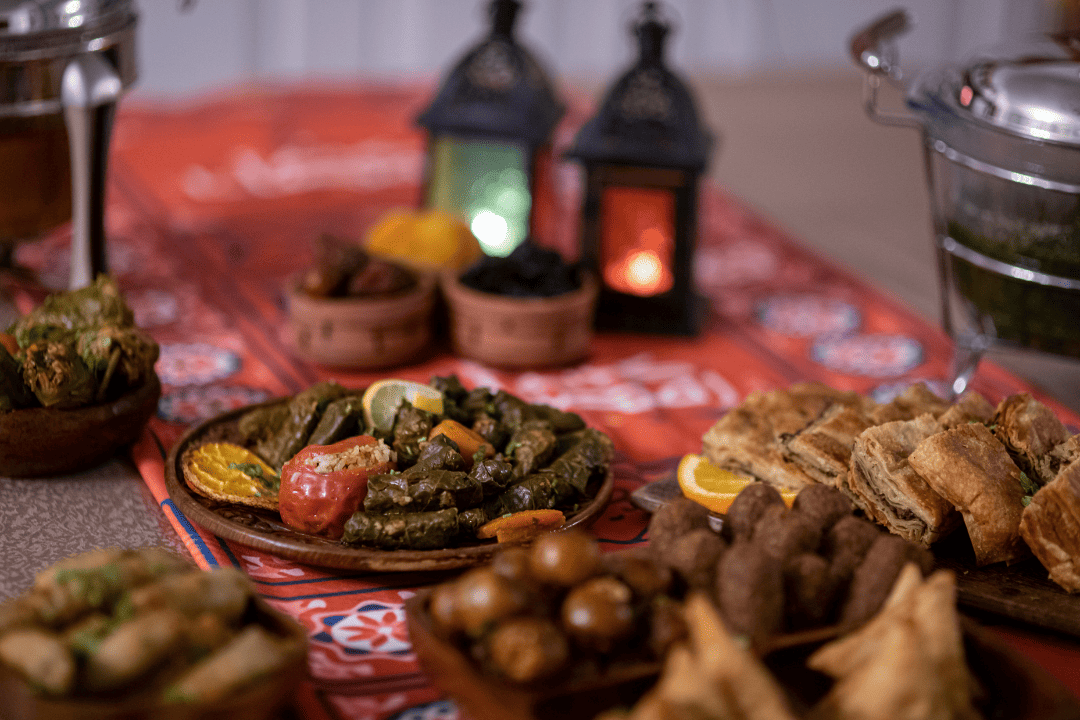Wholesome Iftar: Nourishing Body And Soul During Ramadan
Ramadan is a special time for Muslims around the world. It’s a month of fasting, reflection, and community. Every day, from sunrise to sunset, those observing Ramadan fast, not eating or drinking during daylight hours. When the sun sets, the fast is broken with a meal called Iftar. This meal is more than just eating; it’s a moment of joy, togetherness, and a chance to nourish the body after a day of fasting.
But how can we make Iftar healthy and satisfying? Let’s explore some simple ways to create a wholesome Iftar that’s good for your body and spirit.
Starting Right: The Importance of Hydration
After hours without water, your body needs to rehydrate. Start your Iftar with plenty of water. Drinking water first helps you feel refreshed and aids in digestion. You can also enjoy hydrating drinks like coconut water, which replenishes your body’s electrolytes. Traditional drinks are fine too, but it’s best to enjoy them in moderation because of their sugar content.
The First Bite: Gentle Beginnings
It’s tempting to eat a lot fast when you break your fast, but it’s better to begin with something light. Dates are a traditional and excellent choice. They’re not just sweet and tasty; they give you a quick energy boost, have fiber for your digestion, and come packed with nutrients. After dates, a bowl of soup like lentil or vegetable can warm up your stomach and get it ready for more food.
The Main Event: Nutritious and Balanced
Now, let’s talk about the main Iftar meal. It should be a balanced mix of proteins, carbohydrates, and vegetables.
- Proteins: Choose lean proteins such as chicken, fish, or beans. Proteins are the building blocks for your body, helping to repair and build tissues without adding extra fat.
- Carbohydrates: Go for complex carbs like whole grains, brown rice, or oats. They give you sustained energy, which is especially important after fasting all day.
- Vegetables: Fill half your plate with vegetables. They are low in calories but high in vitamins, minerals, and fiber. Try different types of veggies to keep meals interesting.
Fat: Choose Wisely
Fats are an essential part of your diet, but not all fats are created equal. Use healthier fats like olive oil for cooking and dressings. Nuts, seeds, and avocados are also good sources of healthy fats. But remember, a little goes a long way.
Sweet Endings: Dessert Smart
Who doesn’t love sweets? But after a wholesome meal, it’s best to keep desserts light and not too sugary. Fresh fruits, or desserts made with natural sugars like honey, can satisfy your sweet tooth without overloading on sugar.
Don’t Rush: Take Your Time
Eating too quickly can lead to overeating. Take your time with your meal. Enjoy each bite and listen to your body. It knows when you’ve had enough.
Tips for a Wholesome Iftar
- Plan Ahead: Think about what you’ll eat for Iftar in advance. This way, you can make sure you have all the healthy ingredients you need.
- Cook at Home: Homemade meals are usually healthier than what you might order from outside. You control the ingredients and the cooking methods.
- Stay Active: While fasting, it’s easy to become less active. Try to include some light exercise, like a walk, either before Iftar or a while after eating.
- Sleep Well: Good sleep is essential for a healthy body, especially when you’re fasting. Make sure you’re getting enough rest at night.
- Keep It Varied: Eating the same foods every day can get boring. Try new recipes and explore different cuisines to keep your Iftar interesting and nutritious.
Making It Special
Iftar is more than just a meal; it’s a time for community and togetherness. Sharing your Iftar with family and friends makes it even more special. And when you make your Iftar wholesome, you’re not just feeding the body; you’re nourishing the soul.
Remember, the goal of a wholesome Iftar is not just to eat healthily but to enjoy the food and the moment. It’s a time of gratitude, reflection, and reconnection with your faith and those around you.
In Conclusion
Creating a wholesome Iftar is all about balance. Start light, choose nutritious foods, and take your time to enjoy your meal. By planning ahead and making smart food choices, you can have an Iftar that’s not only delicious but also good for your health.
Ramadan is a beautiful time of year, and by focusing on wholesome Iftar meals, you can make it even more rewarding. Here’s to a healthy, happy Ramadan filled with joy, peace, and satisfying, nutritious meals!



